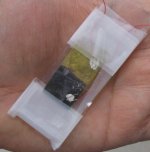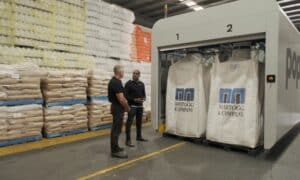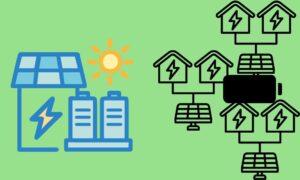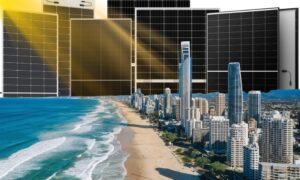You can almost imagine a cheery ‘ding!’ sound signifying your solar cell is done and ready to harvest power from the sun.
It’s not quite as simple as that, but microwave ovens are increasingly being used in solar cell research as a way to produce a nanocrystal semiconductor material rapidly using cheap, common and less toxic metals – and with less energy required.
We first reported on the use of microwave ovens in 2012, when engineers at Oregon State University had developed a way to use microwave heating in the synthesis of Copper zinc tin sulfide (CTZS).
At that time, University of Utah metallurgists were also busy on developing their own CTZS process using an old standard microwave oven that was about to be binned.
They have determined the optimum time required to create the most uniform crystals of the CZTS semiconductor; which is 18 minutes in the microwave oven used, and have also constructed a small photovoltaic solar cell to confirm that the material works.
“We hope in the next five years there will be some commercial products from this, and we are continuing to pursue applications and improvements,” says Michael Free, a professor of metallurgical engineering at the University. “It’s a good market, but we don’t know exactly where the market will go.”
Professor Free and Prashant Sarswat’s process differs from the University of Oregon development in that different precursor chemicals are used to start the process – acetate salts instead of chloride salts – and a different solvent; oleylamine instead of ethylene glycol.
CTZS’s potential isn’t just in solar cells – it can also be used in the theromoelectric conversion of heat to electricity, circuits, LED’s and biosensors.
The researchers are publishing their study of the microwaved photovoltaic semiconductor in the June 1 issue of the Journal of Crystal Growth.
Source/image source














































